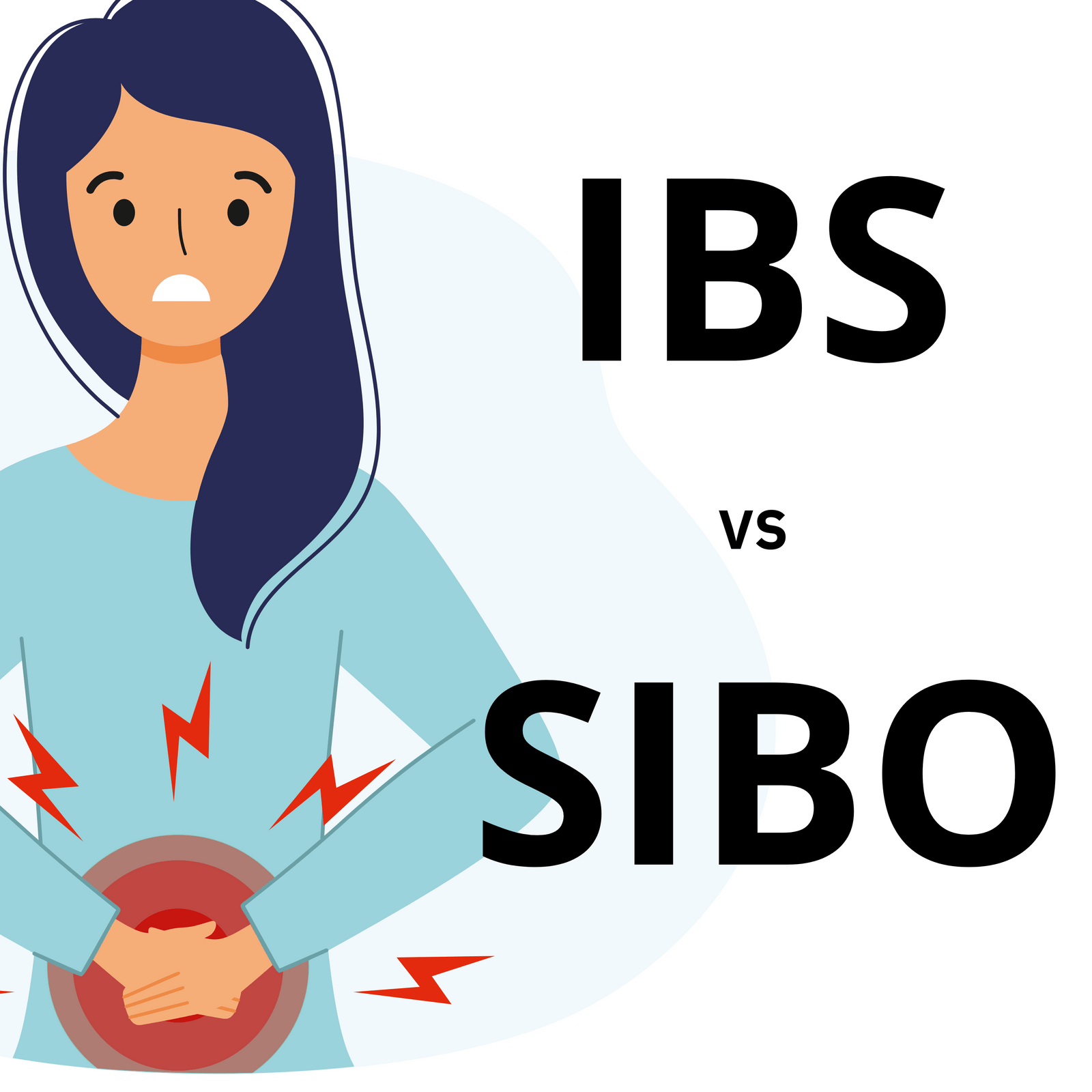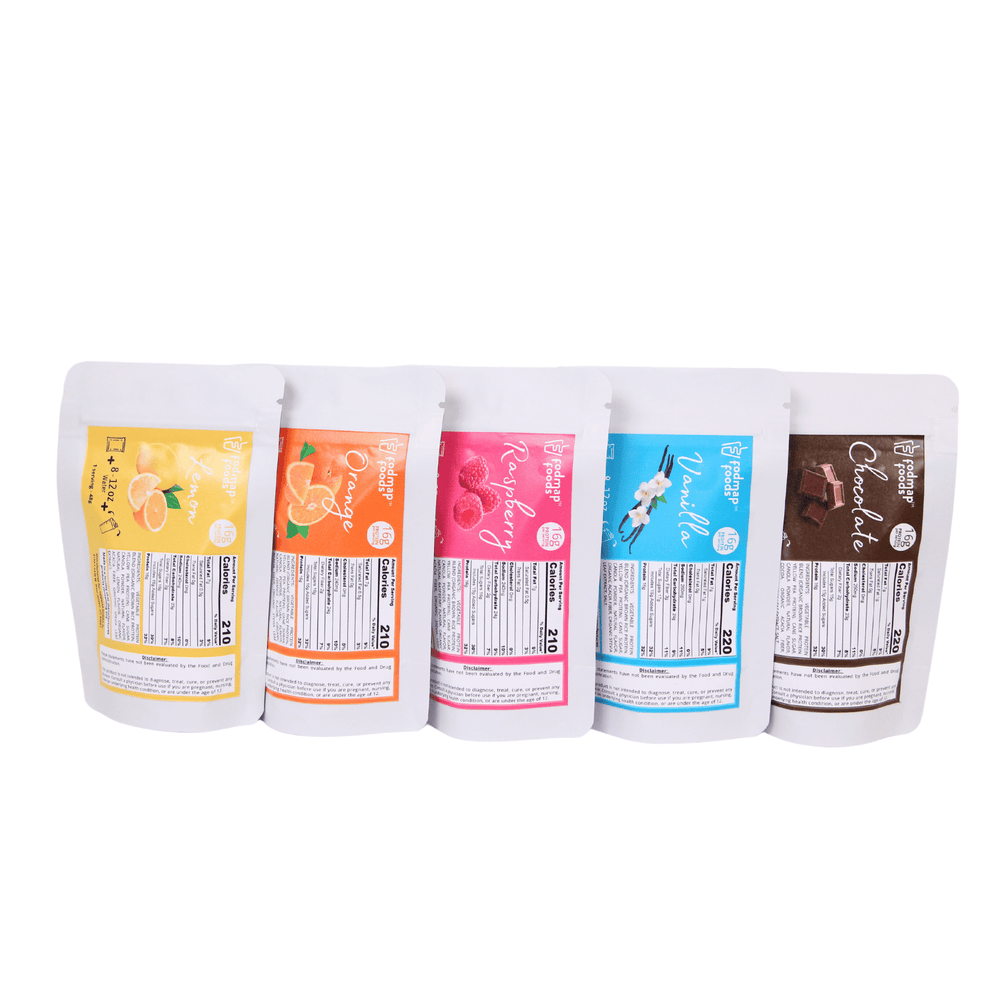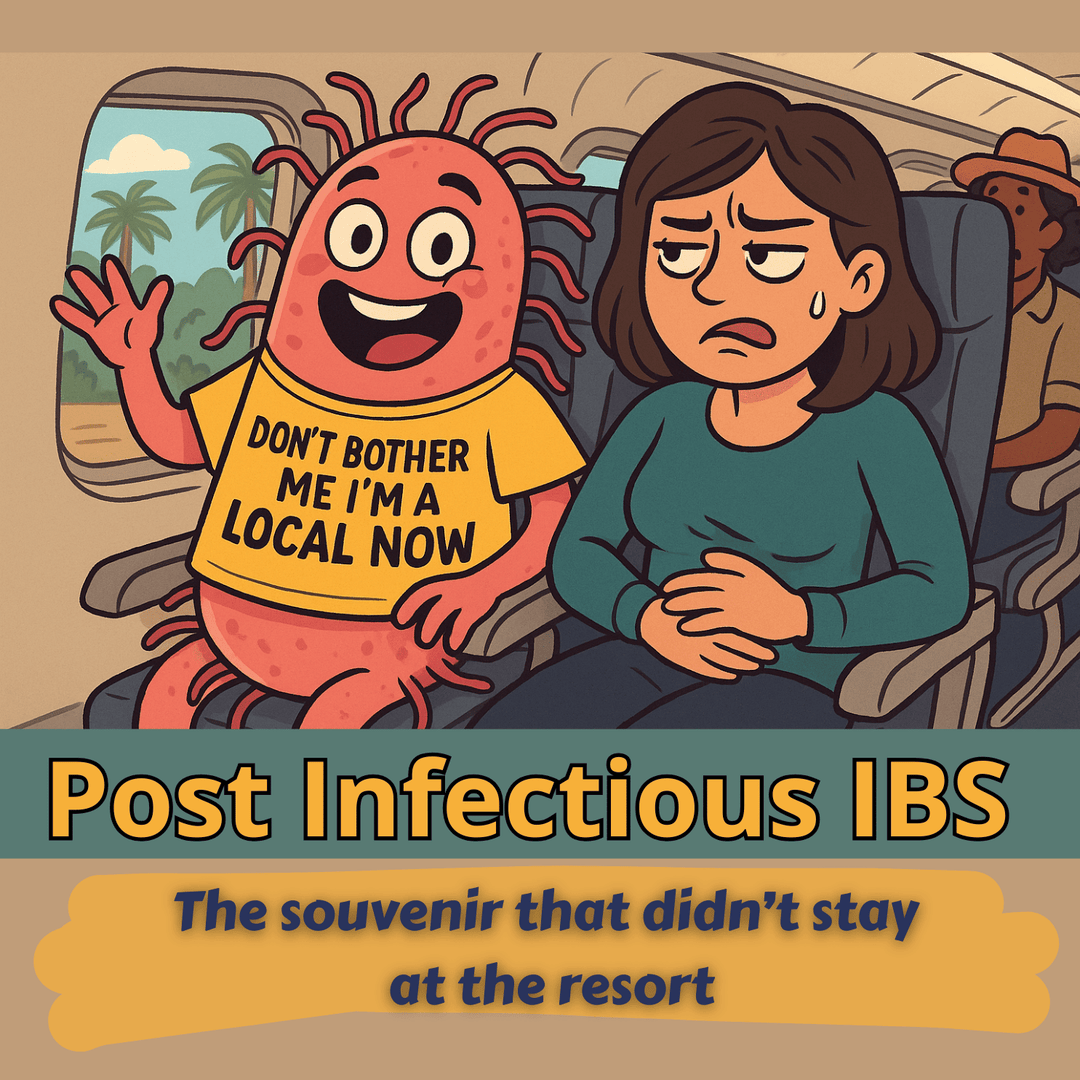Understanding SIBO and IBS: What’s the Difference?

If you or someone you know often has tummy troubles, you might have heard about SIBO (Small Intestinal Bacterial Overgrowth) and IBS (Irritable Bowel Syndrome). These two conditions can make your stomach feel bad, but they are not the same. Let’s explore what makes them different, and how each one affects your body.
What is SIBO?
SIBO occurs when there are too many bacteria in the small intestine. The small intestine is a long tube in your body where most of the food you eat gets absorbed. It’s not normal for a lot of bacteria to live there. When too many bacteria show up, they can cause trouble by eating your food before your body gets a chance. This can lead to stomach pain, bloating, and diarrhea or constipation.
What is IBS?
IBS is a condition that affects the large intestine, which is the last part of your digestive system before your body gets rid of waste. It doesn’t mean there’s something wrong with the structure of your intestines, but they don’t work as they should. People with IBS might feel a lot of abdominal pain, bloating, and experience changes in their bathroom habits, like having diarrhea or constipation. Unlike SIBO, IBS is more about how your gut functions rather than an issue with bacteria.
Key Differences Between SIBO and IBS

1. Location
- SIBO: Involves the small intestine.
- IBS:Affects the large intestine.
2. Cause

- SIBO: Happens when too many bacteria grow in the small intestine. Normally, most bacteria live in the large intestine, but with SIBO, they spread into the small intestine where they don't belong. This can cause problems like stomach pain, bloating, gas, and diarrhea. It happens because something goes wrong with the digestive system's way of moving food and bacteria through the intestines. Things like surgery, certain illnesses, or an abnormal structure in the intestines can lead to SIBO. Treating SIBO often involves antibiotics to reduce the bacteria and changes in diet to prevent it from coming back.
- IBS: Happens when the digestive system doesn't work properly. It can be triggered by eating certain foods, feeling stressed or anxious, or having an imbalance of bacteria in the intestines. People with IBS might experience stomach pain, bloating, and changes in their bowel habits, like diarrhea or constipation. The exact cause of IBS is not fully understood, but it involves a combination of factors, including diet, stress, and the way the brain and gut communicate. Managing IBS often involves dietary changes, stress reduction, and sometimes medication.
3. Symptoms

- SIBO and IBS: Both can cause stomach pain, bloating, constipation, or diarrhea.
- SIBO: Often leads to weight loss and signs of not getting enough nutrients (like vitamins and minerals) because the bacteria eat your food first.
- IBS: Doesn’t typically cause weight loss or nutrient deficiencies.
- IBS: Stomach pain, bloating, constipation, diarrhea. Pain is typically better after a bowel movement.
4. Diagnosis

- SIBO: Doctors usually find out if someone has SIBO by doing a breath test. You drink a sugary liquid, and if there’s too much gas in your breath afterward, it might mean too many bacteria are in your small intestine.
- IBS: There isn’t a specific test for IBS. Doctors often diagnose it based on your symptoms and by making sure you don’t have other conditions, like SIBO.
5. Treatment:
- SIBO: The main treatment is antibiotics to reduce the number of bacteria in the small intestine.
- IBS:Treatment can include changes in diet, like eating more fiber or avoiding foods that trigger symptoms, as well as medications to ease the pain or regulate the gut movement.
Learning More About Your Gut Health
If you’re having stomach issues, it’s important to talk to a doctor who can help figure out what’s going on. Whether it’s SIBO, IBS, or something else, getting the right diagnosis is the first step to feeling better. Remember, every person’s body is different, so treatments that work for one person might not work for another.
Taking care of your gut health is not just about treating problems when they happen. Eating a balanced diet, staying hydrated, and getting regular exercise can all help keep your stomach and the rest of your body happy and healthy.
In a nut shell
SIBO and IBS may seem similar because they both cause stomach discomfort, but they are quite different in where they happen, what causes them, and how they are treated. Understanding these differences can help you talk more knowledgeably with your doctor and take the right steps toward managing your symptoms. So, keep learning about your body, and don’t hesitate to ask for help when you need it!








Leave a comment